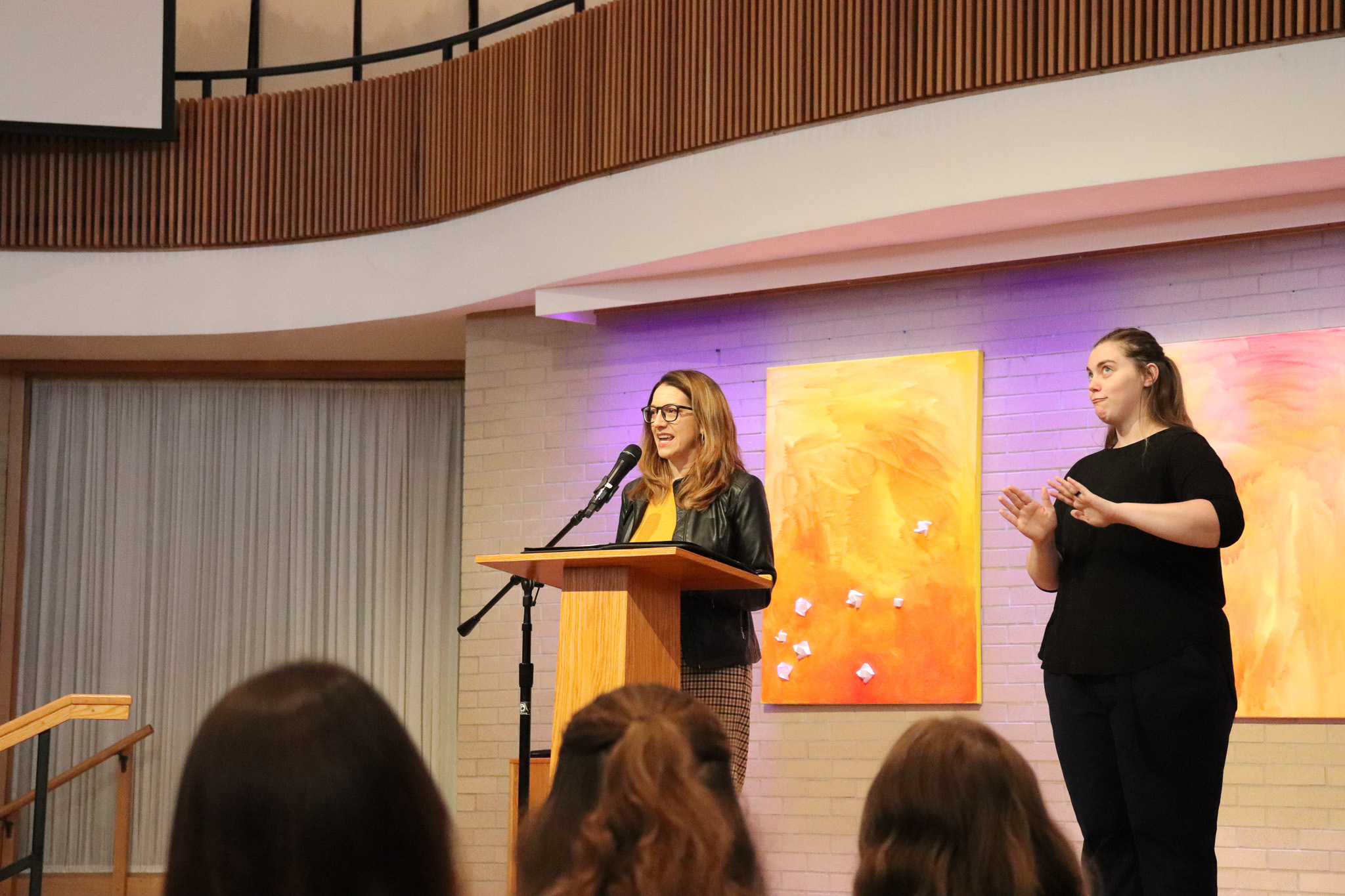On Wednesday, the Goshen College convocation featured Mayor Gina Leichty, ’95. Leichty’s presentation, titled “The Politician’s Guide to Not Being a Politician,” came at the height of the national election season.
Before an election period … how can we offer something that’s going to inspire cross-party discussion on campus in that way?
— Breanna Nickel
Leichty grew emotional telling the story of a young girl who thought that it might be alright to have a woman as president because of her experience having Leichty as mayor. Leichty said that once she got up in front of all the students, she realized, “Wow, this is deeper for me than I thought.”
After the convocation, Leichty commented on the story, saying, “Representation matters.”
Lingny Acevedo, a sophomore communication major, said, “I liked how she said we could all do it, no matter who we are, you know?”
A large part of what Leichty spoke about was directed to students, and the possibility for involvement in local government, no matter their field or area of interest. She listed numerous departments and the ways that students could contribute to them as a career.
“City government shapes every part of our lives,” Leichty said.
A large emphasis of Leichty’s talk was that she did not start out as a politician. She began by recounting the story of her own journey from volunteer work, to nonprofit work, to for-profit work; here a personal caregiver, there a small-business owner. Her time in politics didn’t truly begin until June of 2023, when Jeremy Stutzman, the mayor of Goshen at the time, stepped down. Leichty filled the role for the last six months of the term – she then went on to be elected as mayor in November 2023.
Breanna Nickel, assistant professor of Bible and religion, said, “She has a very diverse career.” Nickel is part of the committee that plans convocations and chapels, which features a combination of student and faculty representation, and described her unofficially titled role as the “convocation coordinator.”
According to Nickel, the decision to invite Mayor Leichty was a very intentional one in the context of the broader political environment. When explaining the committee’s thought process, Nickel said, “Before an election period … how can we offer something that’s going to inspire cross-party discussion on campus in that way?”
The importance of discussion was a theme all throughout Leichty’s speech. She even finished with the words, “I look forward to our continued conversation.”
Leichty explained that she works with many people who disagree with her or are members of a different party than she is, but affirmed the fact that anything that gets done is a result of compromise and collaboration. She highlighted how party distinctions are largely unhelpful, saying, “At the end of the day, potholes do not have party affiliations.”
Anton Alstrom, a first-year music education major, spoke to his impression of the convocation. “It didn’t feel political, in many ways,” he said.
Alstrom went on to add, “Which is maybe what politics should be.”
Nickel echoed the sentiment in the context of GC, saying, “If the goal of a college is really genuinely education, then any college worth its salt is going to be saying, ‘This isn’t about picking and choosing. This is about knowing the whole of it, knowing the whole of a situation,’ and talking to each other even when you are vehemently disagreeing.”



